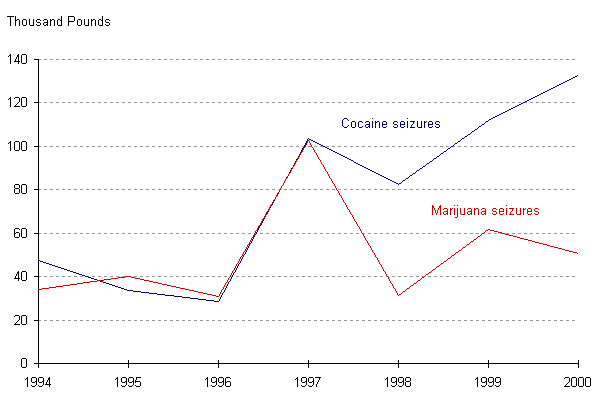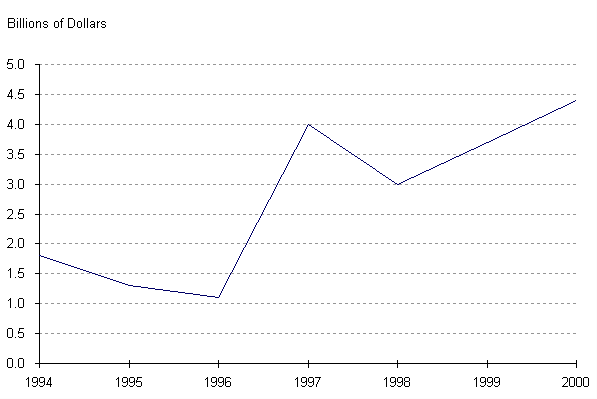 |
 |
 |
 |
U.S. COAST GUARD DRUG SEIZURES
U.S. Coast Guard Drug Seizures (annual data, fiscal years)
Excel | CSV

U.S. Coast Guard Drug Seizures: Value Seized (annual data, fiscal years)

The U.S. Coast Guard is the key federal agency responsible for U.S. maritime drug interdictions. The Coast Guard's mission is to reduce the supply of drugs from the source by denying smugglers the use of air and maritime routes in the Transit Zone, a six million square mile area, including the Caribbean, Gulf of Mexico and Eastern Pacific. The Coast Guard is responsible for nearly 25 percent of all U.S. government seizures of cocaine and marijuana each year.
| Cocaine seized (thousand pounds) |
112 |
132 |
| Cocaine seizures percent change from previous year |
35.18 |
18.62 |
| Marijuana seized (thousand pounds) |
62 |
50 |
| Marijuana seizures percent change from previous year |
95.94 |
-17.95 |
| Coast Guard Drug Seizures: value seized (billions of dollars) |
3.70 |
4.40 |
| Coast Guard Drug Seizures: value seized percent change from previous year |
23.33 |
18.92 |
NOTE: During fiscal year 1997, additional Office of National Drug Control Policy (ONDCP) funding allowed the Coast Guard to commit more than 102,000 ship and aircraft resource hours to dedicated counter drug patrols—nearly 25 percent more than the previous year—accounting for the increase in seizures during that year.
SOURCE: U.S. Department of Transportation, U.S. Coast Guard "Fact File", at http://www.uscg.mil/hq/g-cp/comrel/factfile/.
|
 |
 |
 |
 |

